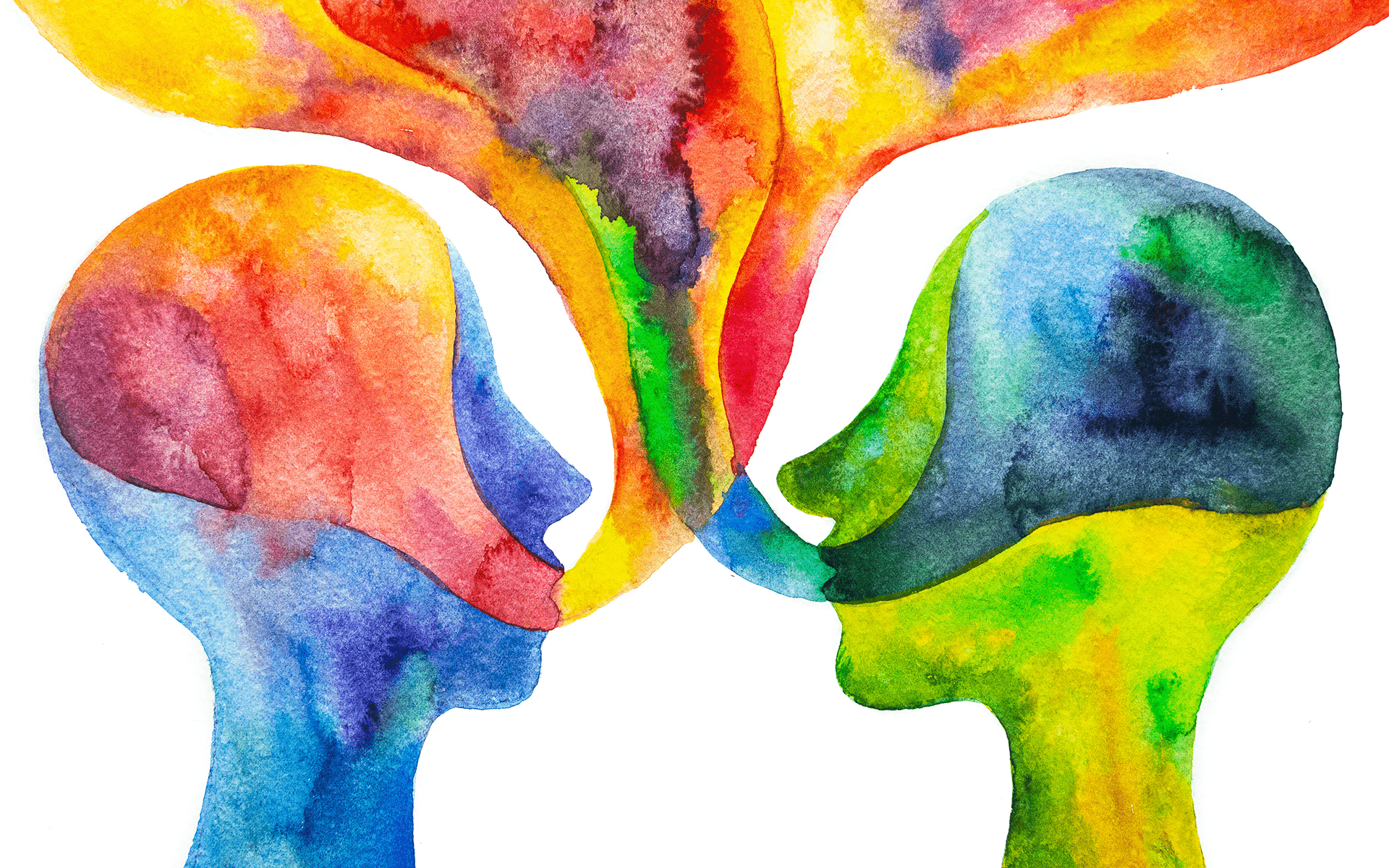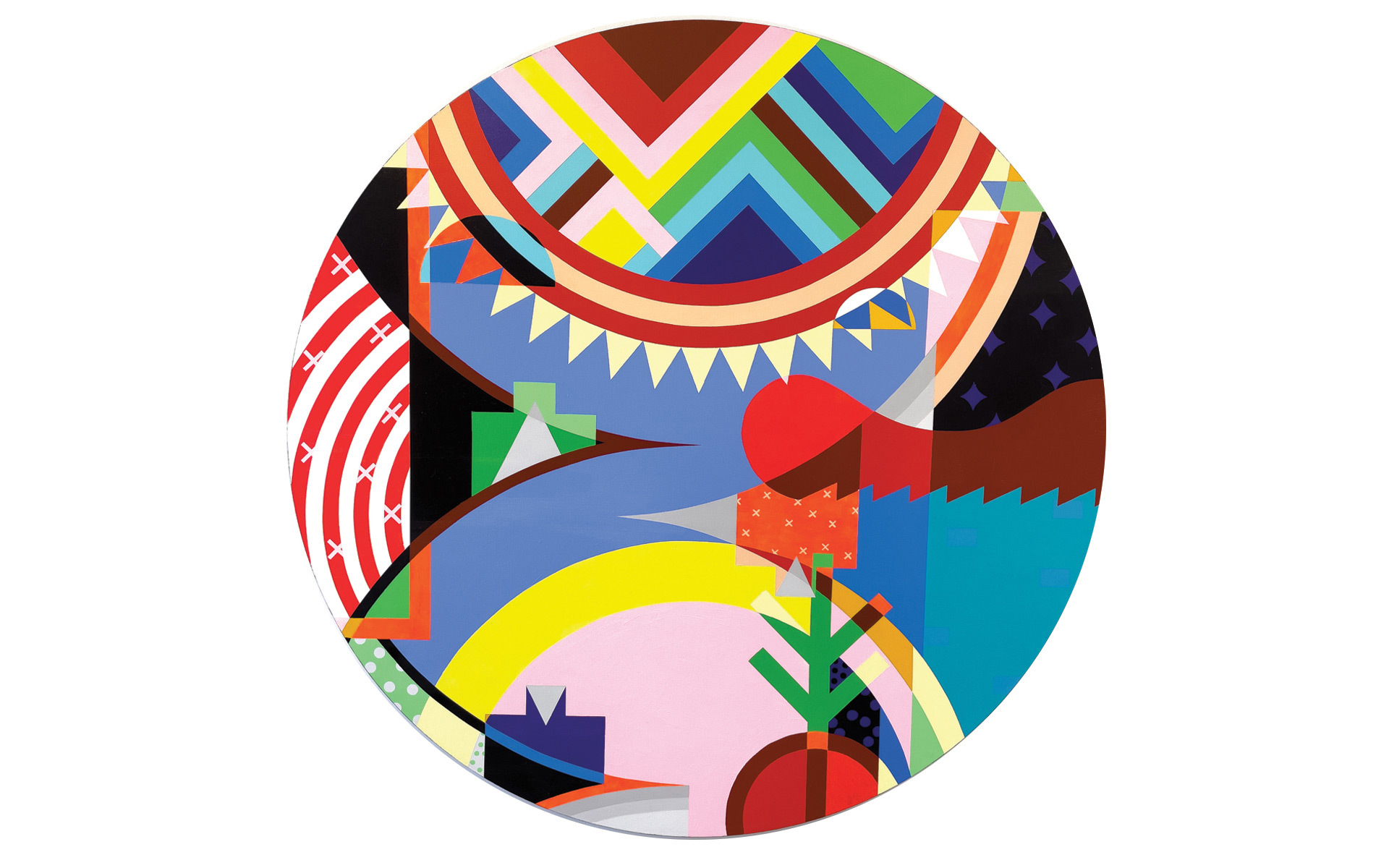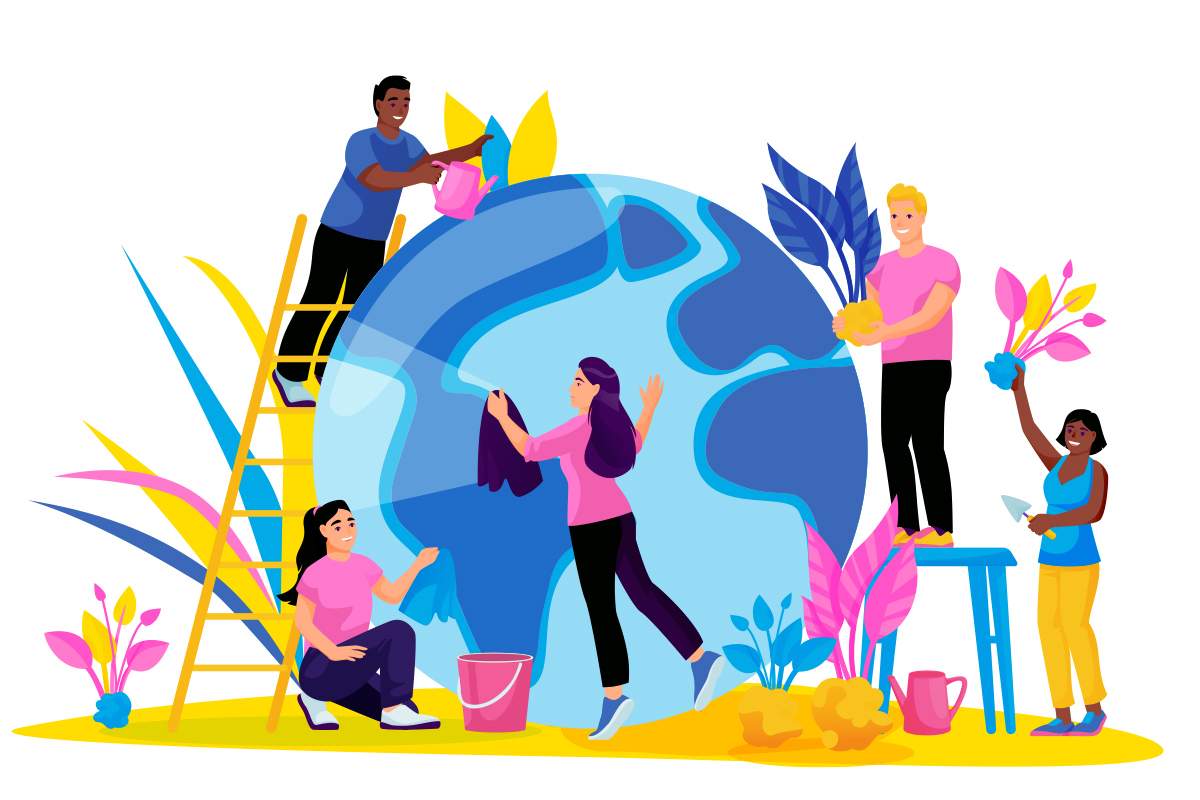For James Vukelich Kaagegaabaw, an educator and linguist who lives near Minneapolis, Minnesota, learning his ancestral language of Ojibwe has been “a fascinating story about myself that had never been told”—an opportunity to connect to his culture in a way that was previously unavailable to him. He began learning Ojibwe about 20 years ago at age 25, from elders including Dr. Rick Gresczyk Gwayakogaabaw at the University of Minnesota, and the late Dr. Dan Jones Gaagigebines and Dr. Dennis Jones Pebaamibines (both originally from Nigigoonsiminikaaning First Nation, in what is now northwestern Ontario, Canada).
Now, Kaagegaabaw is keeping his language alive by posting an Ojibwe Word of the Day on social media, featuring the pronunciation of an Ojibwe word, with illustrative images—such as “Ode’imin” (“strawberry”), “Wiikonge” (“S/he gives a feast”), and “Iskigamizige” (“S/he boils sap”).
In longer weekly videos, Kaagegaabaw offers a basic translation, along with an explanation about how the philosophical and spiritual aspects of the words are connected to the cultural practices of Ojibwe and other Anishinaabeg peoples, such as the Chippewa, Odawa, and Menominee. So while Ojibwe words reflect the Seven Grandfather Teachings, as Kaagegaabaw explains, “They are not just abstract concepts, they are things you do—parts of a holistic lifestyle that aligns our thoughts and actions toward living in a balanced way.” Consequently, these words may provide fresh perspectives for other kinds of practice-based living, such as mindfulness.
4 Mindful Ojibwe Words
1) Debwewin: speaking truth
When the elders were teaching him about the stars, James Kaagegaabaw says, they asked him, “Can you possibly know the names of all the stars?” Kaagegaabaw found the question insightful. “It is impossible,” he says, “so it shows that our thoughts and our language have limits. The truth is much too vast; I don’t know the whole truth, I can speak only from my own perspective or knowledge. ‘Lying’ in Ojibwe is not ‘dishonest,’ but rather, ‘he/she misleads with speech.’”
2) Gwayakwaadiziwin: righteousness and respect
“Gwayakwaadiziwin means living with righteousness, virtue, living properly or in order. It is about how you are living: If you are living correctly, the truth will be clear in how you live. This involves Manaaji’idiwin, respect. Both are always reciprocal, deeds always done to one another, acknowledging the relationship.”
3) Manaaji’idiwin: respect
“The translation would be ‘to go easy on’ or ‘to acknowledge the sanctity in someone’s life.’ It also involves showing respect, doing good deeds, to one another. When animals and plants give their lives to you so you can live, this brings you into relationship with them, and makes them relatives. Remembering you are in reciprocal relationship keeps you from taking more than you need. From the Ojibwe perspective, it is the animals that are going easy on us. The buffalo, the deer—they understand that if they do not give humans clothes, food, and shelter, we will die. So they show us compassion, give us unconditional love. So Minaaji’idiwin also means that we are all interconnected, interdependent.”
4) Dabasendizowin: “I think lowly of myself”
“English speakers might think this means low self-esteem. Rather, it is recognizing that I cannot live my life without you, and I am not more important than you. We say that ‘I am all of my relatives’—all the medicines, animals, fish, trees are giving me life. All of my relatives are me, and I am all of my relatives, and we take care of each other. Within this is the recognition that everything that happens will affect you and affect me. It is a very transformative way of looking at the world.”
read more
All Our Relations: Four Indigenous Lessons on Mindfulness
There’s healing in acknowledging our interconnectedness. Four Indigenous wisdom keepers share how their practice helps them remember. Read More
A 12-Minute Meditation for Connecting to Your Body
The four elements have the ability to connect us, both internally and externally, with the world around us. Jeanne Corrigal brings her Métis heritage, and her training as an insight meditation teacher, to this guided practice to connect with the four elements within our own body. Read More
In Awe of All Our Relations with Barry Boyce
In this rich conversation, founding editor Barry Boyce shares what he learned about awe, our relationship with nature, and each other while visiting the National Museum of the American Indian. Read More










